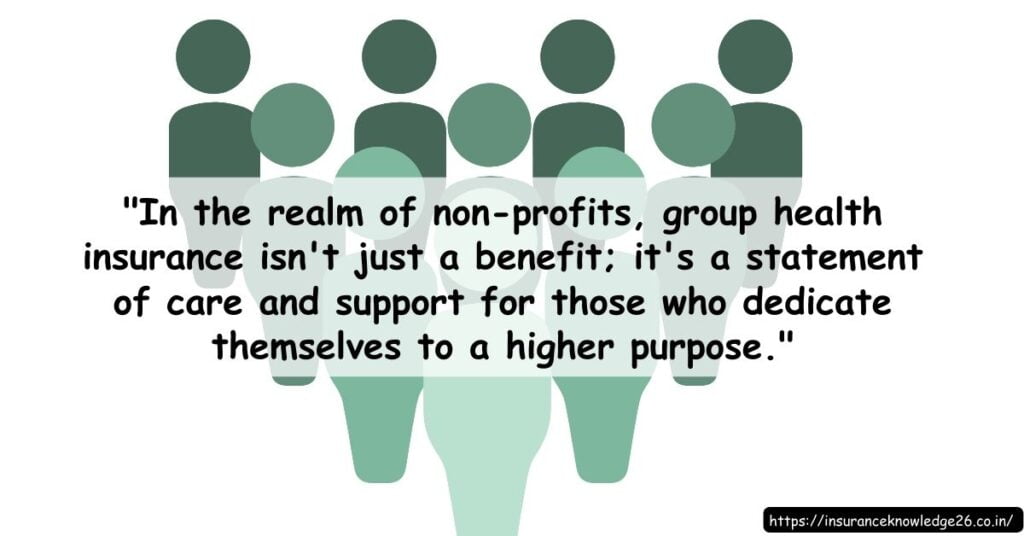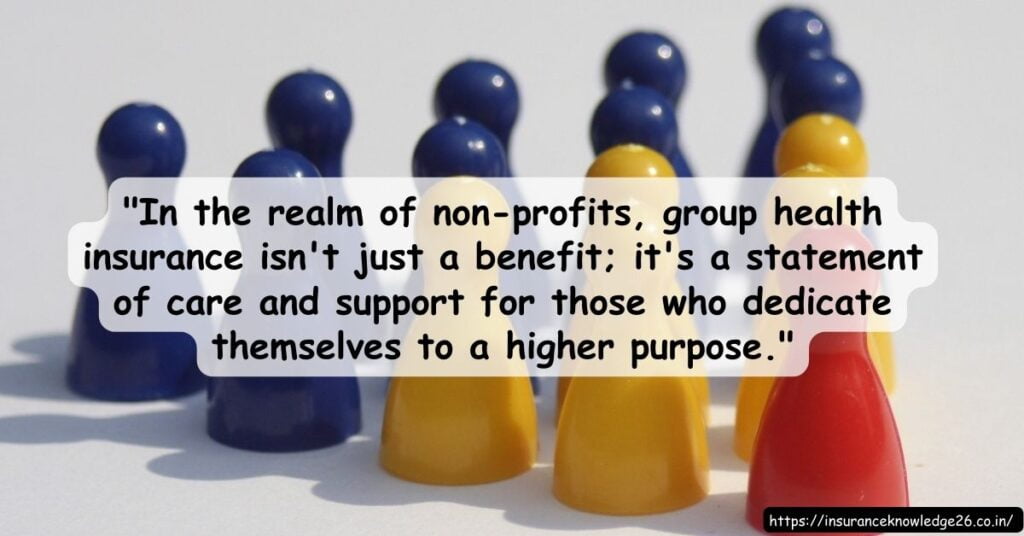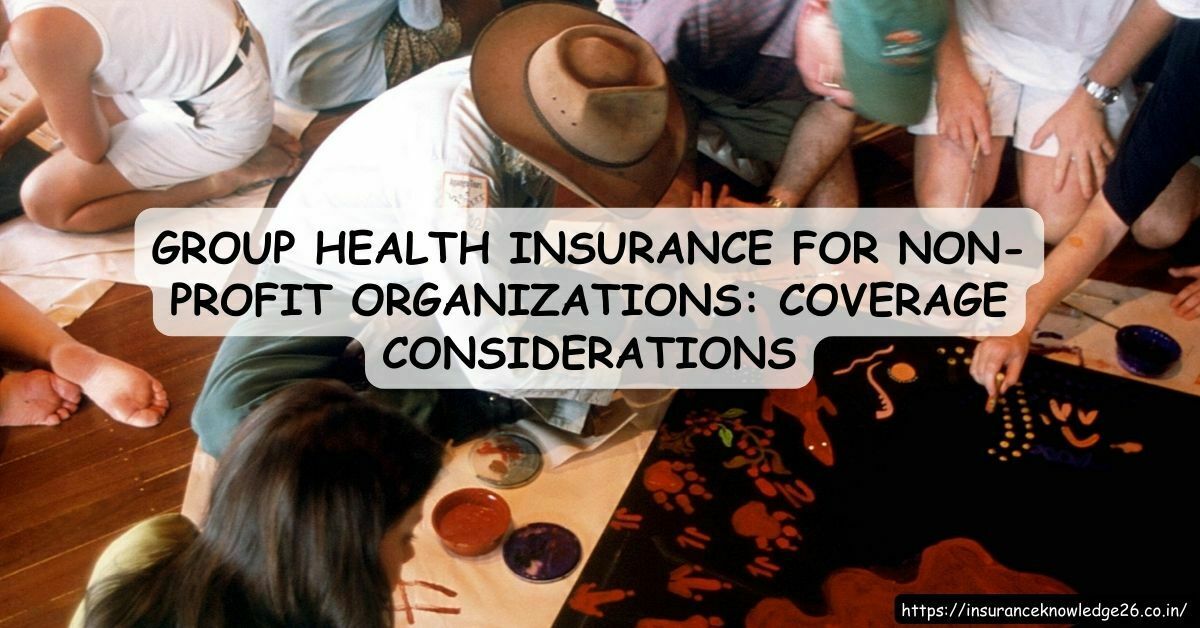Explore comprehensive group health insurance options for non-profit organizations. Understand coverage considerations, benefits, and how to select the right plan to ensure the well-being of your team.

As non-profit organizations play a pivotal role in serving the community, it’s crucial to prioritize the well-being of their dedicated employees. Group health insurance is a cornerstone in achieving this goal, offering comprehensive coverage to safeguard the health and financial security of staff members.
Coverage Considerations for Group Health Insurance
Exploring the Needs of Non-Profits
Understanding the specific needs of non-profit organizations is crucial when considering group health insurance. These organizations often operate with limited resources, making it imperative to choose a plan that balances comprehensive coverage with cost-effectiveness.
Comprehensive Medical Coverage
A group health insurance plan should encompass a wide range of medical services, including preventive care, hospital stays, prescription medications, and specialist consultations. This coverage ensures that employees can access essential healthcare services without facing significant financial burdens.
Mental Health and Wellness Benefits
In today’s world, mental health is a critical component of overall well-being. A comprehensive group health insurance plan should include provisions for mental health services, counseling, and wellness programs to support employees’ mental and emotional health.
Dental and Vision Care
A holistic approach to health includes dental and vision care. Including dental and vision coverage in your group insurance plan can contribute to the overall well-being of employees and their families.
Prescription Drug Coverage
Prescription medications are an integral part of healthcare for many individuals. When selecting a group health insurance plan, ensure that it provides adequate coverage for prescription drugs, allowing employees to access necessary medications without financial strain.
Flexible Plan Options
Non-profit organizations often have diverse teams with varying healthcare needs. Opt for a group health insurance provider that offers flexible plan options, allowing you to tailor coverage to the unique requirements of your employees.

Network Coverage and Accessibility
Consider the network of healthcare providers included in the insurance plan. Having a broad network ensures that employees have access to quality medical care conveniently.
Wellness Incentives
Many group health insurance plans offer wellness incentives to promote healthy lifestyles among employees. These incentives may include gym memberships, wellness challenges, and rewards for achieving health goals.
Cost-Effectiveness
Balancing comprehensive coverage with cost-effectiveness is essential for non-profit organizations. Evaluate premium costs, deductibles, and co-pays to ensure that the chosen plan aligns with your budget.
Compliance with Regulatory Requirements
Non-profit organizations must adhere to certain regulatory requirements related to employee benefits. Ensure that the chosen group health insurance plan meets these legal obligations.
Employee Input and Communication
Involving employees in the decision-making process regarding group health insurance can foster a sense of ownership and satisfaction. Communicate openly about the available options, benefits, and how the chosen plan aligns with the organization’s values.
Comparison Shopping
Don’t settle for the first insurance plan you come across. Engage in thorough comparison shopping to explore different plans, coverage options, and costs. This helps you make an informed decision that aligns with your organization’s goals.
Plan Administration and Support
Consider the ease of plan administration and the level of customer support provided by the insurance provider. A responsive and supportive provider can simplify the management of the group health insurance plan.

Long-Term Sustainability
Think long-term when selecting a group health insurance plan. Choose a plan that not only meets the current needs of your organization but also accommodates future growth and changes.
Inclusivity and Diversity
Promote inclusivity and diversity by selecting a group health insurance plan that caters to the diverse needs of your workforce. This may include considerations for language accessibility, cultural competence, and coverage for unique medical needs.
Addressing Employee Concerns
Provide a platform for employees to voice their concerns and preferences regarding group health insurance. Addressing these concerns demonstrates a commitment to the well-being and satisfaction of your team.
Legal and Contractual Clarity
Review the terms and conditions of the insurance contract carefully. Ensure that the contractual agreements are clear, and seek legal advice if needed, to avoid any misunderstandings in the future.
Employee Education
Empower your employees with information about the group health insurance plan. Conduct informative sessions to explain coverage options, benefits, and how to maximize the advantages offered by the plan.
Continuous Review and Improvement
The needs of non-profit organizations evolve over time. Continuously review the effectiveness of the chosen group health insurance plan and make adjustments as needed to ensure its continued relevance and adequacy.
Building a Culture of Well-Being
Beyond insurance coverage, consider implementing workplace initiatives that promote a culture of well-being. Encourage healthy habits, work-life balance, and a supportive environment for your employees.
FAQs
Can non-profit organizations offer the same health insurance options as for-profit companies?
Yes, non-profit organizations can provide similar health insurance options, but they often require plans tailored to their unique needs and financial considerations.
How can I ensure that the group health insurance plan is affordable for our non-profit?
Look for insurance providers that offer competitive rates and explore cost-sharing options with employees. Additionally, consider subsidies or grants available for non-profit organizations.
Can we offer a group health insurance plan to both full-time and part-time employees?
Yes, many group health insurance plans can be extended to both full-time and part-time employees, promoting inclusivity and ensuring comprehensive coverage for your entire team.
What is the role of wellness incentives in group health insurance?
Wellness incentives encourage employees to adopt healthier lifestyles, leading to improved overall well-being. These incentives may include rewards for achieving health goals or participating in wellness programs.
How can non-profit organizations address language and cultural barriers in their group health insurance plans?
Choose an insurance provider that offers language-accessible materials and demonstrates cultural competence. This ensures that all employees can easily understand and access the benefits provided.
Selecting the right group health insurance plan for your non-profit organization requires careful consideration of various factors, from coverage options to cost-effectiveness and long-term sustainability. By prioritizing the well-being of your employees and leveraging the insights provided in this article, you can make informed decisions that positively impact both your team and the community you serve.
Disclaimer
The information provided in this post is based on general knowledge and may not be up-to-date or applicable to specific insurance products or regulations in your jurisdiction. Insurance policies and regulations can vary widely, so it’s essential to research and verify information with local authorities or insurance providers.

